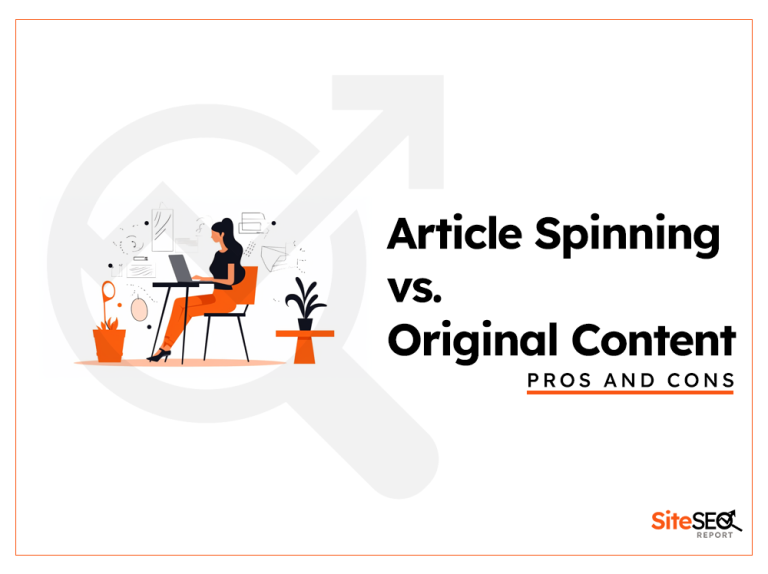Navigating the vast terrain of SEO can sometimes feel like treading through a maze. One question that consistently pops up among content creators and SEO professionals is: How many outbound links should I have on my page?
The answer, though nuanced, can help you craft a user-friendly site that ranks well.
The Nature of Outbound Links
Outbound, or external, links are hyperlinks that point from your website to another website. They differ from internal links, which guide users to another section or page within the same website.
Why the Concern Over the Number?
The number of outbound links on a page impacts:
User Experience (UX): Too many links can overwhelm and confuse readers.
Link Juice: Each outbound link “shares” a bit of your page’s authority with the linked site.
Relevance and Context: Outbound links should enhance the content’s value by providing additional information or references.
The Link Count Conundrum
There isn’t a universally agreed-upon “perfect” number of outbound links. Here’s why:
No Hard Limits: Search engines like Google don’t set a strict maximum number of outbound links. But, excessive links can be flagged as spam, especially if they appear to be irrelevant or manipulative.
Content Length Matters: A 2,000-word in-depth article will naturally have more outbound links than a 300-word blog post. It’s about striking a balance.
Quality Over Quantity: Rather than stressing over the number, focus on the quality and relevance of your links. Are they benefiting the reader? Are they relevant to your content?
General Guidelines to Consider
50-75 Links Rule: A common benchmark some SEO professionals suggest is to have between 50 to 75 total links (including internal and outbound) on a page. This isn’t set in stone but serves as a rough guide.
Distribute Link Juice Wisely: While outbound links share your page’s authority, linking to high-quality, authoritative sites can actually boost your content’s credibility and enhance UX.
Regular Audits: It’s wise to periodically review your links. Ensure they’re still active, relevant, and not leading to “bad neighborhoods” on the web.
Let’s Consider Wikipedia as an Example
Wikipedia, one of the web’s most trusted and authoritative sources. Wikipedia pages are known for their extensive outbound links. These links are not just added for the sake of it but serve to reference sources, validate information, and guide readers to additional relevant content. It’s not uncommon to find a Wikipedia article with dozens of outbound links, especially on comprehensive topics.
This approach by Wikipedia highlights a few key principles:
- Purpose Over Quantity: The number of links should align with the content’s purpose. Wikipedia uses links to provide citations and further reading, ensuring the authenticity and depth of its content.
- Relevance is Key: Outbound links should be directly relevant to the content at hand. Wikipedia’s links always relate closely to the subject matter, enhancing the user experience.
- Trustworthiness: Ensure that the sites you’re linking out to are credible. Wikipedia’s rigorous citation standards mean it mostly links to authoritative sources, further boosting its own trustworthiness.
In conclusion, rather than focusing solely on a fixed number of outbound links, it’s more pertinent to prioritize the quality, relevance, and purpose of each link, much like Wikipedia does. The goal should always be to augment the user experience and provide value.
Key Takeaways
While there’s no definitive answer to the “maximum number of outbound links” question, the underlying principle is clear: prioritize your readers’ experience and the relevance of your content. When links are judiciously placed and offer genuine value, both your readers and search engines will reward you.
Remember, SEO isn’t just about algorithms and numbers; it’s about delivering a seamless and informative experience to your audience. Focus on that, and the numbers will fall into place.
Frequently Asked Questions
What are outbound links in SEO?
Outbound links, often termed external links, are links that point from your website to another website, serving as a bridge between your content and external sources.
How do outbound links differ from internal links?
While outbound links direct users from your site to another website, internal links connect different pages or sections within your own website, helping with site navigation and distributing page authority.
Why is the number of outbound links on a page important?
The quantity of outbound links can affect user experience, page authority distribution, and how search engines perceive the content’s quality and relevance.
Can having too many outbound links hurt my website’s SEO?
Yes, excessively linking out, especially to low-quality or irrelevant sites, can be seen as spammy behavior and might negatively impact your site’s search ranking.
What’s the optimal number of outbound links for a page?
While there’s no strict rule, a general guideline suggests a total of 50-75 links (combining both internal and external) for a page. However, the focus should be on link quality and relevance rather than quantity.
How does the “link juice” concept relate to outbound linking?
Link juice refers to the authority or value a page can pass to another through a link. Each outbound link “shares” a portion of this authority, so it’s essential to link out judiciously.
Are no-follow outbound links beneficial?
Yes, no-follow links instruct search engines not to pass link juice, but they can still be valuable for user experience, diversifying your link profile, and signaling to search engines about the type of linked content.
How can I determine the quality of sites I’m linking out to?
Using tools like Moz’s Domain Authority Checker or Ahrefs’ Site Explorer can give insights into the credibility and quality of external sites.
Should my anchor text for outbound links be keyword-rich?
While it’s essential for anchor text to be relevant, over-optimizing with keyword-rich anchors can look spammy. Aim for natural, descriptive anchor texts that offer context.
How often should I audit my outbound links?
Regular audits, perhaps quarterly or biannually, can help ensure all links are active, relevant, and not leading to low-quality sites.






